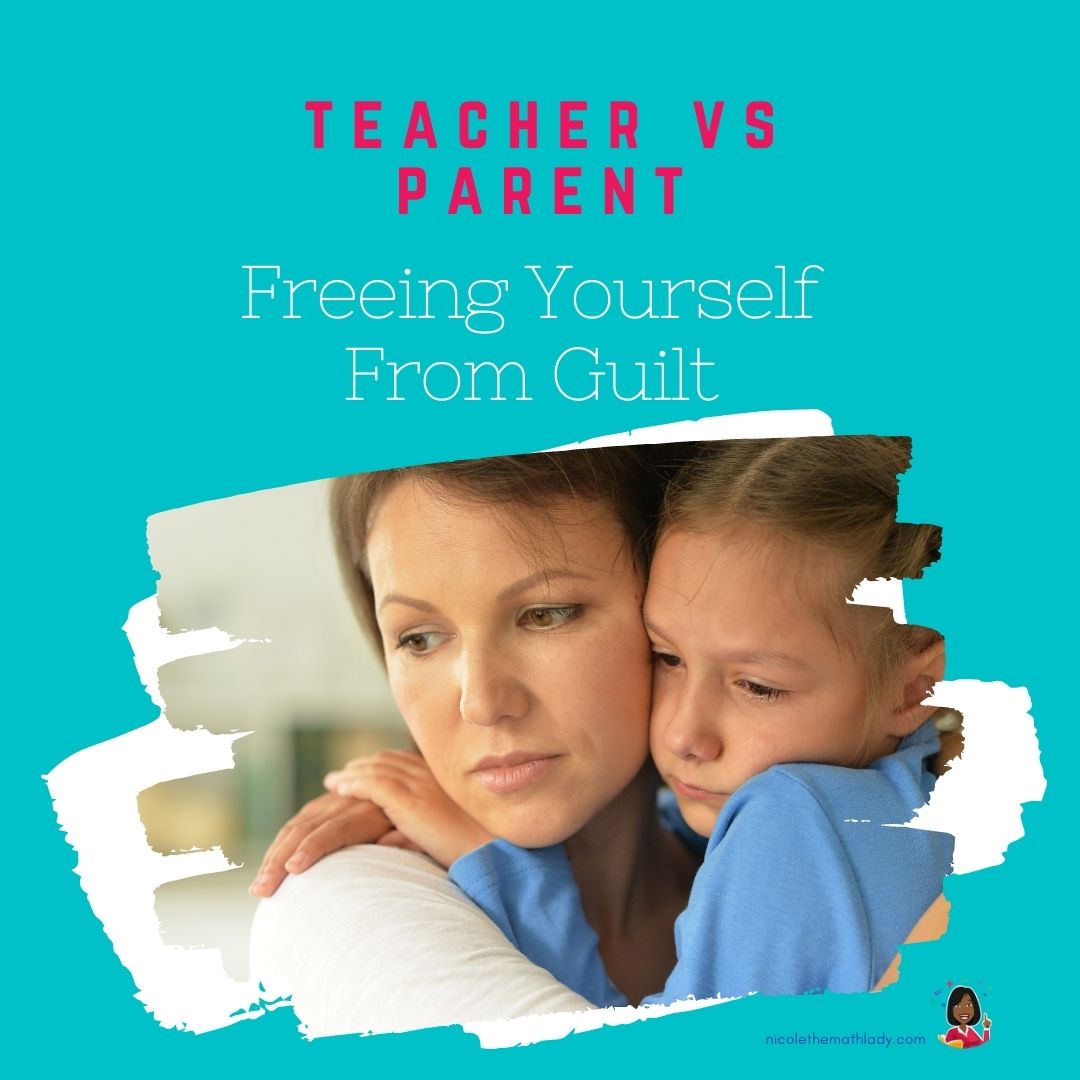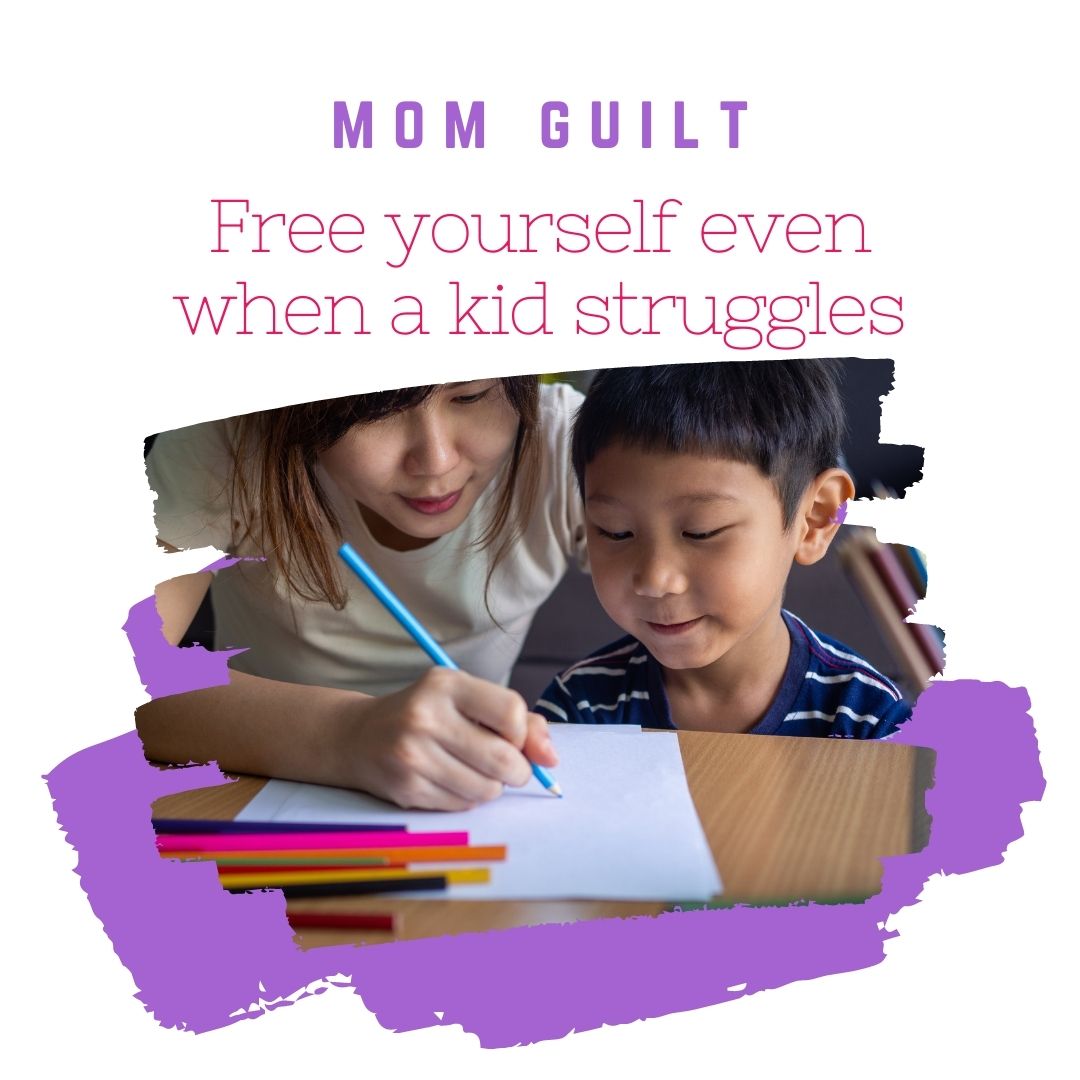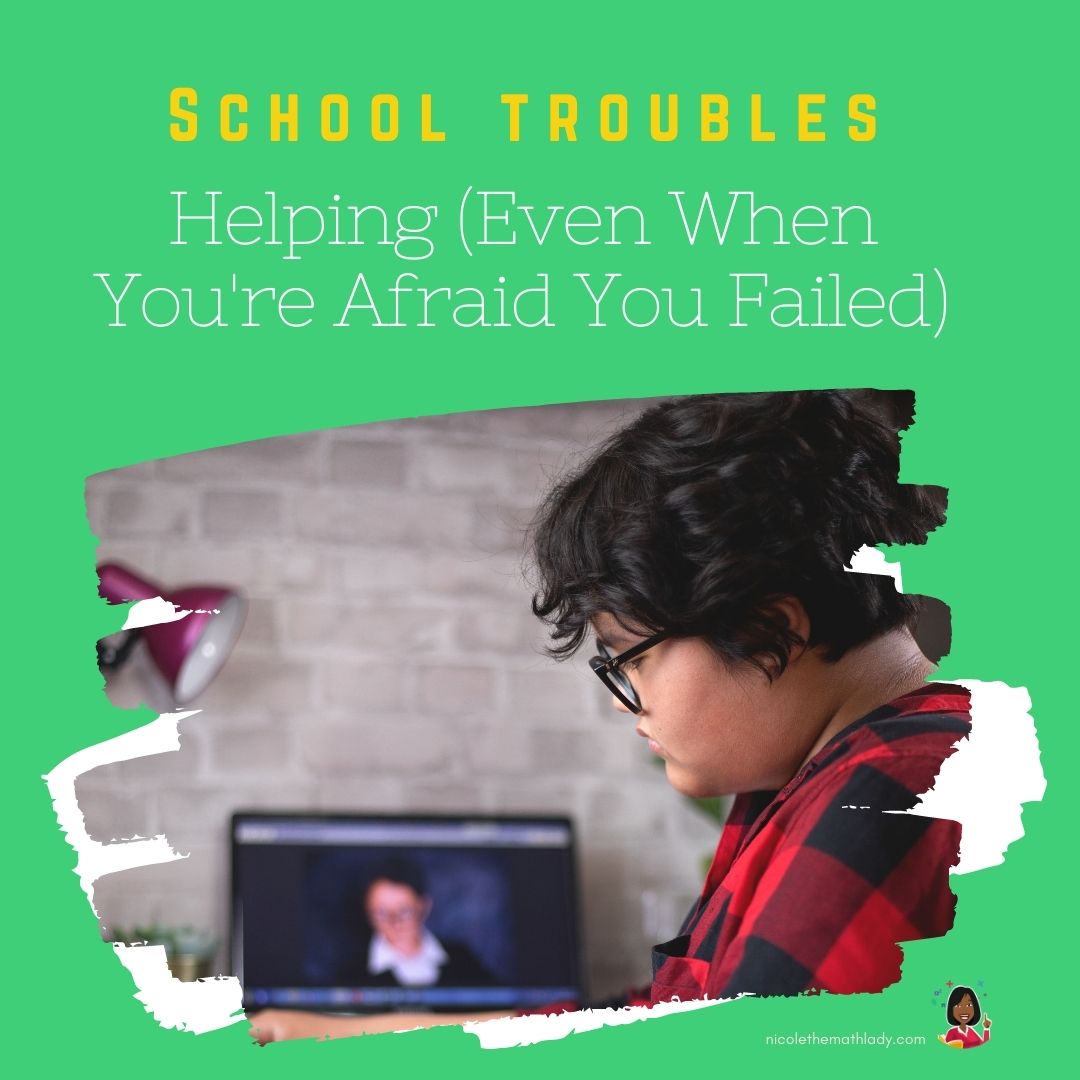“Never let success get to your head. Never let failure get to your heart.”
–Anonymous
If you’ve been a parent for more than 5 minutes, you know that it can be really, really hard not to take your child’s struggles personally. Dealing with your child’s struggles just feels all too much like they are your own struggles. In other words: mom guilt, especially homeschool mom guilt, is a real thing.
But if we don’t figure out how to separate the two, it can negatively affect our homeschool experience–and maybe our child’s, too! Today we’ll work on homeschool mom guilt by:

It’s hard to take on the job of a homeschool teacher. Suddenly you’re not just on duty for all the difficult parenting tasks, but you also have your child’s academic career to head up, as well. That’s a lot!
While as teachers we certainly need to strive for excellence in what we do, we also need to remember that the relationship has two parts. There is both a teacher and a student and while they work together, they are two separate entities.
So always remind yourself: In your homeschool, you are the teacher. At the end of the day, your child is the student, and they have talents, challenges, and personalities that are not actually a reflection on you in the teacher role. Don’t beat yourself up too much.
While a good teacher can help make successful students, a student who struggles doesn’t necessarily reflect the quality of the teacher. Despite the highest quality instruction, some students may take longer to “get” any given concept. It’s not a surefire reflection on you as a teacher.
Sure, you’ll mess up. But that’s where recognition of that, some apologies, and a change in course can make a world of difference.
And here’s the even more important distinction: a child’s struggles in school are NOT a reflection on you as a parent! You don’t need to take on more concern for your child than is reasonable as a teacher. But because you are also your child’s parent, you can help them work through struggles in a greater role than a classroom teacher.
The bottom line: Be kind to yourself in both roles. And understand that to intertwine yourself too much in the one you’ve taken on academically may be undermining your own efforts if it causes you to doubt what you are doing.
While we may look at worse-than-expected final exams, standardized test scores, or progress reports and be tempted to despair, it’s important to remember: each school year has a MUCH bigger story to tell than those numbers.
Did your child improve year-to-year? Did they learn how to break down concepts more effectively than they had previously? Are math facts coming more easily to your child? Then there is still so much to celebrate.
Of course, if there are problems that need to be addressed then those can’t be ignored. However, it’s important to not let the good things be eclipsed by challenges. The two can exist at the same time.
So celebrate the good. And (we’ll talk about this next) make sure you use what data you have to make the improvements you need to. Dealing with your child’s struggles gets a lot easier when you can find the good in them.

Of course, it is so much nicer to see high scores than low ones, and that’s what we all want. However, not every child will do well in every possible area of every possible subject! And that should free us to not blame ourselves for the problems. Sometimes, sometimes, it just happens.
But the data you hate to see may be exactly what you and/or your child needs right now. It can show you gaps you may not have realized were there. It can highlight what needs improvement. It can help uncover areas where your child is at risk of falling through the cracks.
And while that might *feel* like a failure, it’s actually something of a gift. Test scores or grades that show an area in which your child is not performing well mean that now you know you need to focus on that area. Taking time to shore up their skills in that spot can really help further down the road. It also provides you with a unique opportunity to invest time in them that might be what they need emotionally as much as academically.
At any rate, just remember that the data is NOT there to indict you for not being good enough! It’s simply there as a marker, an indicator, a piece of information.

Struggles seem especially hard in children. Why? Because when you’re young, every bad thing that happens to you may legitimately be the worst thing to ever happen to you! Without the perspective of age, so many difficulties seem far worse than they actually are. As such, it can be especially hard to watch our kids deal with these dramatic emotions.
But it’s so important that we do. That we choose not to swoop in and rescue them. And that we don’t see all that drama as something that we may have caused. We almost assuredly did not–we are simply spectators as they encounter obstacles in life.
However, we can step out of the spectator role and guide them through those struggles with an eye toward teaching them how to get through other hard things they may encounter. And while we shouldn’t feel guilty for the hard things, coaching them through it can certainly help reinforce our role as a guide for them in a way that can keep any pesky guilt at bay.
Our kids capture our hearts. And that’s a GREAT thing. We should love them as hard as we can. But when we start to get wrapped up in their failures (or successes), it can mean neither of us can grow as we should.
Lots of kids struggle at times, with math or other difficulties. The temptation to take those on as a reflection on us doesn’t really help them, and it can bring us way down, too. On the flip side, actively dealing with our child’s struggles can really do great things to strengthen our relationship with them and free us of the guilt we might be tempted to feel.
So next time you see a score or mark that isn’t what you’d like, take a deep breath and remember it’s probably not about you at all. But it can be about opportunity–for growth and perseverance for everyone involved!
Talk to you soon,
Nicole the Math Lady
Responses